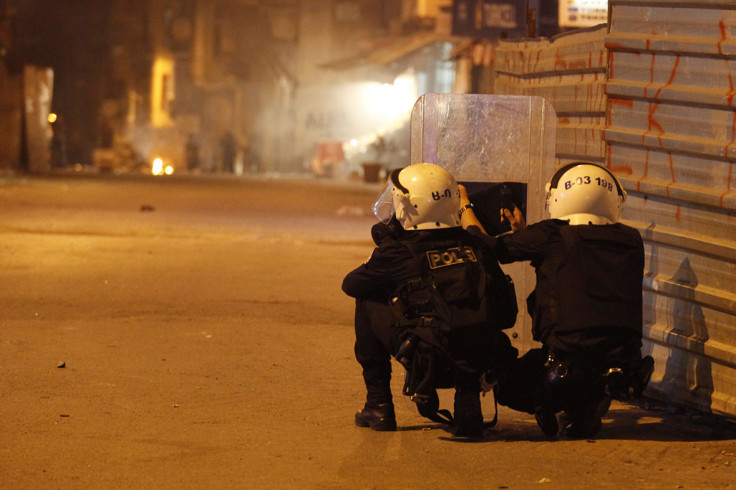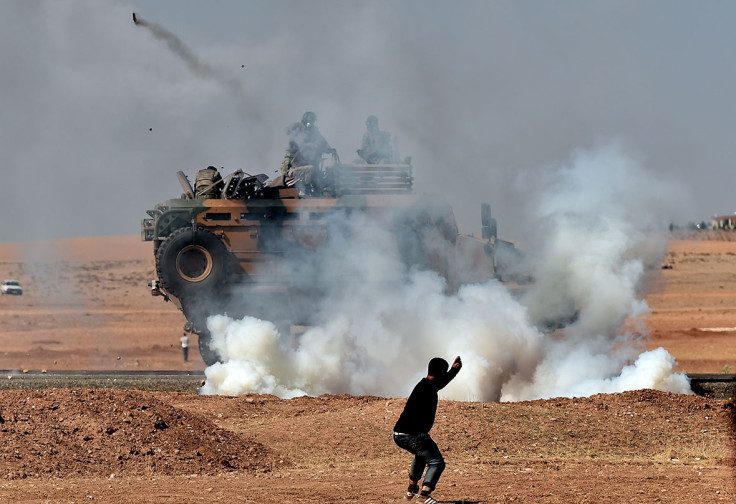Cezmi Budak death shows Turks are terrified of Kurdish election prospects

An incident at the foot of a volcano in eastern Turkey has caused an explosion of anger among the Kurdish population, and sparked accusations that the Ankara government is attempting to provoke conflict with Kurd fighters before the Turkish elections in two months' time.
The incident took place on Saturday (11 April) during a Kurdish spring festival at the volcanic Mount Tendurek, which is located in Agri, in the very far-eastern corner of the Kurdish heartlands. Turkish soldiers reportedly clashed with Kurdish fighters of the People's Defence Forces, the HPG.
According to local reports, Kurdish politician Cezmi Budak was killed after joining a 'human shield' designed to halt the fighting. Local reports suggest Budak was hit with a gas canister fired by the Turkish soldiers.
The incident was reported by Kurdish politician Selahattin Demirtas, co-chairman of the People's Democratic Party (HDP). It has been alleged that this is just the latest in a series of offensives launched by Turkish troops against Kurdish forces.
According to the pro-Kurdish People's Defence Forces, or HPG, the Turkish army has deliberately instigated a number of military operations against its fighters. In addition to the clash at Mount Tendurek, fighting has also allegedly taken place in Sirnak, Hakkari, Tunceli and Qandil, all of which have a strong HPG presence.
Under Turkish electoral law, a party must secure a minimum 10% of the vote in the national elections to secure representation in parliament. The law was introduced by the generals who orchestrated the 1980 military coup, and critics suggest it was specifically designed to keep out the Kurdish parties, which typically poll between 5 and 8%.
However, with the HDP gaining popularity, some have suggested that Turkey's troops are using military force to turn public opinion away from the Kurds and prevent them from gaining access to legislative power.
"As support for the HDP increases and the likelihood we will exceed the 10% threshold increases, they are getting uncomfortable," says Sebahat Tuncel, a co-chairman of the HDP.
"In order to prevent [the HDP getting to 10%] they are using this kind of tension."

June's election is likely to be the most critical in Turkey's history, with president Recep Tayyip Erdogan seeking to win a large majority in order to be able to change the constitution in favour of increased presidential powers.
This election is also critical in determining whether the long-running 'Kurdish Question' will finally be resolved.
The Kurdish side has waged an open campaign for the hearts and minds of Turkey's liberal left through the HDP, which was established in October 2012. If the HDP does as well as some analysts are predicting, it could well scupper Erdogan's quest for greater presidential powers and create a powerful opposition to his governing AKP party.
'The Agri provocation was organised beforehand'
Dire warnings have poured forth from the Kurdish National Congress, based in Brussels, about the AKP's attempts to provoke the Kurdish side into war, and criminalise them in the eyes of Turkish electorate.
"If we look at the statements made by Turkish PM Davutoglu and President Erdogan while the military operation was still going on in Agri, we can see that they organised the provocation from beforehand" said the KNK in a statement.
"It is clear that these attacks are part of a plan to sabotage the resolution process and upcoming general elections. It has become evident now that the amassing of military apparatus, personnel and special forces in the area over the past few days was part of this provocative operation."
Imprisoned Kurdish leader Abdullah Ocalan instigated a peace process with the Turkish state back in 2009, when Turkish military intelligence chief Hakan Fidan asked him to produce a comprehensive statement of his views. Ocalan's vision became a document called the Road Map to Negotiations, which has formed the basis of the Kurdish side of the 'Peace Process' ever since.
On 21 March 2013, Ocalan appealed for a comprehensive peace process and a halt to armed struggle by the Kurdish movement. This call that has been heeded until now; but with HPG forces being forced to adopt defensive operations by the Turkish army, the Kurdish dedication to peace is under threat.
The consequences of this week's events, if left unchecked, are unthinkable, and we can expect more provocations in the run up to the elections on 7 June 2015. Although the Kurdish side have demonstrated the commitment to a peaceful road to change, the AKP party, so keen to paint the Kurds as belligerent brutes, are beginning to bang the drums of Turkish nationalism and war.
Mark Campbell runs a blog about Turkey and Kurdistan, which you can find here. You can also find out more about Mark and his work on Twitter @Hevallo.
IBTimes invited Turkey's Ministry of Foreign Affairs to respond to the claims about Cezni Budak's killing, but we have not received a reply at time of publication.
© Copyright IBTimes 2025. All rights reserved.




















